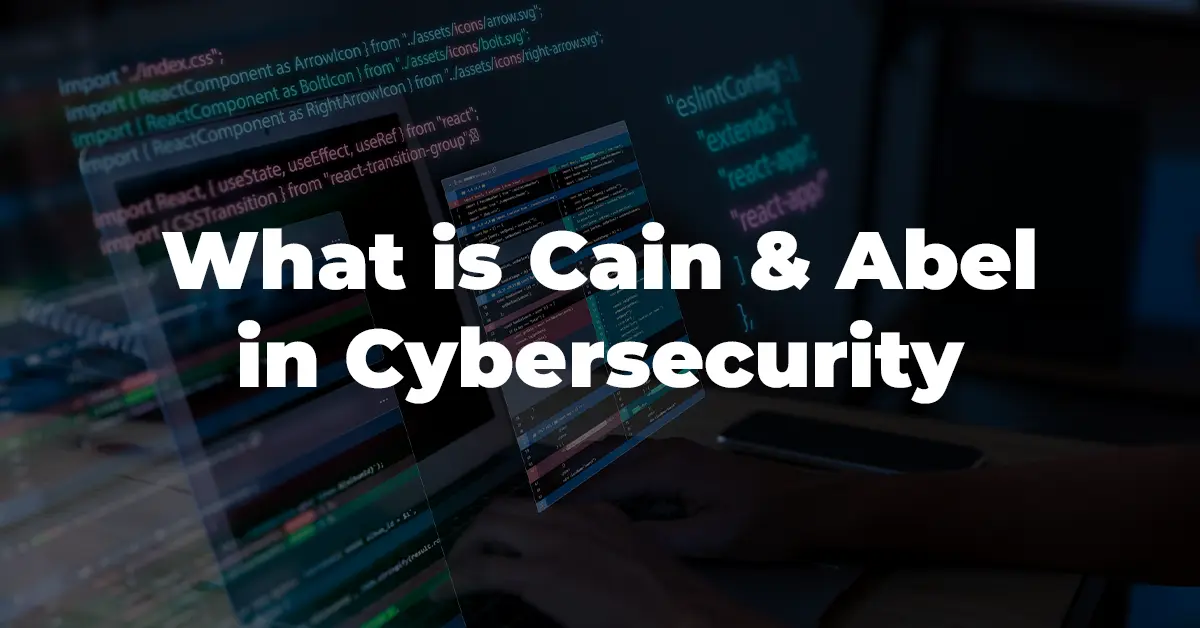One of the biggest questions newcomers ask when considering a career in cybersecurity is, “Does cybersecurity require coding?” It’s a valid concern. For many, the thought of writing scripts or learning programming languages is intimidating and often the main reason they hesitate to enter the field.
The truth is, while coding can be useful in some cybersecurity roles, it’s far from a universal requirement. In fact, many professionals build successful careers without writing a single line of code especially in areas like risk management, compliance, auditing, and security operations. At the same time, coding can be a powerful skill for those looking to move into more technical, hands-on roles like penetration testing or engineering.
This guide breaks down when and where coding is helpful in cybersecurity, which roles rely on it, and how you can get started whether you come from a technical background or not.
What Is Coding, and What Counts as “Technical”?
At its simplest, coding is about writing instructions that a computer can execute. These instructions are written in programming or scripting languages like Python, Bash, JavaScript, or PowerShell. In cybersecurity, coding is often used to automate tasks, manipulate data, run scans, or analyze large volumes of information.
However, it’s important to distinguish between full-scale programming and basic scripting, which are very different in terms of difficulty and usage. Full-scale programming might involve building software, designing entire systems, or developing security tools from the ground up. Basic scripting, on the other hand, usually means writing short, functional snippets of code that perform repetitive or data-heavy tasks like extracting IP addresses from a log file or scheduling a regular scan of a directory.
Most entry-level cybersecurity roles rely more on the latter scripting if anything. In fact, many professionals don’t write code at all in their day-to-day work. The tools used in modern cybersecurity environments, such as SIEMs (Security Information and Event Management systems), EDRs (Endpoint Detection and Response platforms), or firewalls, are designed to be user-friendly and don’t require coding skills to operate effectively. But knowing how to write or adapt simple scripts can increase your efficiency and help you go further in your role.
That’s what makes this question so important: coding isn’t a barrier to entry, but it can become a lever for advancement, especially in more technical or engineering-focused paths.
Overview of Cybersecurity Roles: Coding vs. Non-Coding
Cybersecurity is not a single job; it’s a broad ecosystem of roles, each with its own demands and responsibilities. Some positions lean heavily on scripting and development, while others are more focused on policy, strategy, or investigation. Understanding which roles require coding and which don’t can help you focus your learning and career planning effectively.
Security Analyst – Minimal Coding
Security analysts are often the first responders to cyber threats. They work in SOCs (Security Operations Centers), monitor alerts, investigate suspicious activity, and report findings to engineers or leadership. While some environments encourage scripting to automate searches or customize dashboards, most analysts rely on built-in features of SIEMs like Splunk, QRadar, or Sentinel. You can succeed in this role with no coding knowledge though basic scripting skills can give you an advantage.
Penetration Tester – Moderate to Heavy Coding
Penetration testers, or ethical hackers, simulate attacks to identify weaknesses in systems before malicious actors can exploit them. This work often involves building custom payloads, writing scripts to automate reconnaissance, or modifying open-source tools to fit specific testing environments. Languages like Python, Bash, and PowerShell are essential in this space. If you’re aiming to work in offensive security or red teaming, coding is a core skill, not just a nice-to-have.
GRC Specialist – No Coding Needed
Roles in Governance, Risk, and Compliance (GRC) are centered around policy creation, risk evaluation, audit reporting, and aligning with industry regulations such as GDPR, HIPAA, or ISO 27001. These professionals ensure that organizations meet legal and internal security standards without needing to understand the inner workings of code. Strong analytical, documentation, and communication skills are more valuable here than any scripting language.
SOC Analyst – Low to Moderate Scripting
SOC analysts focus on real-time monitoring and threat detection. Most of the tools they use SIEMs, ticketing systems, and dashboards — are visual and don’t require programming. However, scripting can become helpful for filtering log data, generating reports, or automating repetitive analysis. Basic Python or PowerShell knowledge can make a SOC analyst more efficient, but these skills can be learned on the job or over time.
Incident Responder – Optional Scripting
Incident responders jump into action when a breach or attack occurs. Their job is to contain threats, preserve evidence, and support forensic investigations. While many responders rely on forensic tools with graphical interfaces, those with scripting knowledge can quickly process and analyze data, decode payloads, or reconstruct event timelines. Coding is helpful in this role, but not a prerequisite for entry.
Security Engineer – Strong Coding Advantage
Security engineers are builders. They design secure systems, deploy tools, write detection rules, integrate APIs, and sometimes even develop custom solutions to complex security problems. This is where coding becomes a core part of the job. Whether writing automation scripts in Python, configuring infrastructure-as-code (like Terraform), or scripting responses to security events, engineers rely on programming daily. If you enjoy building and solving technical challenges, this is the most coding-heavy role in the field.
When Does Coding Help in Cybersecurity?
Automating Tasks and Increasing Efficiency
One of the most practical uses of coding in cybersecurity is automation. Whether you’re a security analyst trying to process log data faster, or a penetration tester running reconnaissance on a target, automation can save hours of manual work. A well-written Python or Bash script can handle repetitive tasks like scanning networks, checking open ports, sorting logs, or even generating incident reports. Instead of clicking through interfaces or using a dozen different tools, a script can execute a complete workflow with a single command. This ability to automate doesn’t just improve productivity it also reduces errors and response time.
Writing Custom Scripts for Unique Problems
Cyber threats don’t always follow predictable patterns, and neither do the environments they target. Sometimes, off-the-shelf tools fall short. That’s when the ability to write custom scripts becomes crucial. For example, penetration testers might need to write payloads to bypass a specific filter or craft a fuzzing script to test for injection flaws. Security engineers might write integrations between cloud monitoring tools or build logic into SIEM systems to better detect suspicious behavior. When dealing with edge cases or anything highly specific having coding skills allows you to build what doesn’t already exist.
Understanding and Modifying Open-Source Tools
Cybersecurity has a rich ecosystem of open-source tools like Metasploit, Nmap, Burp Suite extensions, Snort, and OSQuery. While many of these tools are user-friendly, the ability to read and modify their underlying code gives you far greater control. Whether you’re tweaking a Metasploit module, writing a custom plugin for a scanner, or debugging a script shared in a community forum, basic coding knowledge allows you to adapt tools to your environment rather than being limited by their defaults.
Advancing into Specialized Roles
As you grow in cybersecurity, roles tend to become more specialized and technical. For example, malware analysts often reverse-engineer code in assembly or C/C++ to understand how a program behaves. Cloud security engineers write infrastructure-as-code in languages like YAML or JSON. Threat hunters develop and fine-tune detection logic using Python or proprietary query languages. In these roles, coding becomes more than helpful it becomes essential. It’s a gateway skill for those looking to move into advanced or niche areas of the industry.
When Coding Isn’t Necessary (And What to Focus on Instead)
Policy, Risk, and Compliance Roles
Not every cybersecurity job revolves around systems and software. In fact, a growing part of the field is focused on regulatory compliance, governance, and risk management. These roles are critical for ensuring that security practices align with industry standards and legal requirements. GRC specialists conduct audits, evaluate risk exposure, write security policies, and prepare organizations for compliance certifications like ISO 27001 or SOC 2. These tasks demand attention to detail, writing skills, and regulatory knowledge but not a single line of code.
Analyst Roles with Visual-First Tools
Many security analysts and SOC (Security Operations Center) professionals operate almost entirely through graphical dashboards and monitoring platforms. They analyze traffic, investigate alerts, escalate incidents, and report findings all without touching a terminal. While basic scripting can help streamline analysis or enrich data, it’s not necessary for handling most core responsibilities in these roles. Mastery of tools like Splunk, AlienVault, or Sentinel, combined with strong analytical thinking, is usually enough to thrive.
What You Should Focus On Instead
If you’re pursuing a path that doesn’t involve coding, focus your energy on building core cybersecurity skills such as:
- Understanding network and system fundamentals – Know how data flows, what common protocols do, and how operating systems manage users and processes.
- Learning how attacks work – Study real-world breaches, threat actor tactics, and how malware spreads to better anticipate and recognize patterns.
- Developing strong soft skills – Communication, documentation, and presentation skills are essential, especially when conveying risk to non-technical stakeholders.
- Becoming tool-proficient – Learn your SIEM, your vulnerability scanner, your EDR platform inside and out. Deep tool expertise often matters more than coding in many teams.
Real-World Examples: Coding vs. Non-Coding Roles
Cybersecurity isn’t a solo sport it’s a team effort that brings together people with different specialties, skill sets, and backgrounds. Some of those roles involve writing scripts and code regularly. Others don’t involve coding at all but are just as critical to keeping organizations secure. To understand how this plays out in real-world environments, let’s look at three practical scenarios.
Red Team Penetration Tester (Coding-Heavy)
During a red team engagement, an ethical hacker is tasked with simulating a real-world cyberattack against a company’s infrastructure. To bypass a firewall and gain internal access, they write a custom Python script that exploits a misconfigured web server. Once inside, they use PowerShell to escalate privileges and move laterally within the network. Here, coding is essential. Without the ability to build or adapt tools on the fly, the tester wouldn’t be able to mimic modern attacker techniques effectively.
Blue Team SOC Analyst (Scripting-Light)
At the same organization, a Security Operations Center (SOC) analyst monitors logs and alerts for signs of suspicious activity. They don’t build tools from scratch, but they do create a simple Bash script to automatically filter logs for failed login attempts and highlight unusual patterns. This small amount of scripting saves them time during investigations and allows them to respond faster. While coding isn’t the primary part of their job, knowing how to automate basic tasks adds real value.
GRC Specialist (Non-Coding Role)
In the same cybersecurity team, a GRC specialist is reviewing the company’s compliance posture before a third-party audit. They don’t touch code at all. Instead, they evaluate whether security policies are aligned with ISO 27001 standards, document risk assessments, and ensure the right controls are in place. Their work helps the organization avoid legal penalties and build customer trust. It’s technical in nature, but not in the sense of programming it’s strategic, regulatory, and business-focused.
The Bigger Picture: One Team, Many Strengths
These roles show how cybersecurity is most effective when it’s collaborative. The penetration tester identifies vulnerabilities, the analyst monitors and reacts, and the GRC specialist ensures that standards are met and policies are followed. Each role is important, and each person brings a different skill set to the table.
Some members of the team write code every day. Others never touch it. What they all share is a commitment to protecting the organization and adapting to an evolving threat landscape. If you’re worried that coding isn’t your strength, remember: cybersecurity has room for a wide range of talents.
Conclusion
So, does cybersecurity require coding? The honest answer is: sometimes but not always. While coding is an asset, especially in technical or engineering-focused roles, it’s not a barrier to getting started or growing in this field. Many roles from governance to compliance, from auditing to risk don’t require any programming at all. Others may require light scripting, or simply reward those who are willing to pick it up along the way.
If your goal is to break into cybersecurity, start from where you are. Build foundational knowledge, explore different roles, and focus on practical experience with real tools. As you gain confidence, you can decide whether learning to code is the next step for your goals not a requirement, but an accelerator.
Don’t let the fear of coding keep you from exploring a rewarding, high-demand career. Cybersecurity needs defenders, thinkers, investigators, writers, engineers, and analysts and you don’t have to be a programmer to make a meaningful impact.








Hi, this is a comment.
To get started with moderating, editing, and deleting comments, please visit the Comments screen in the dashboard.
Commenter avatars come from Gravatar.